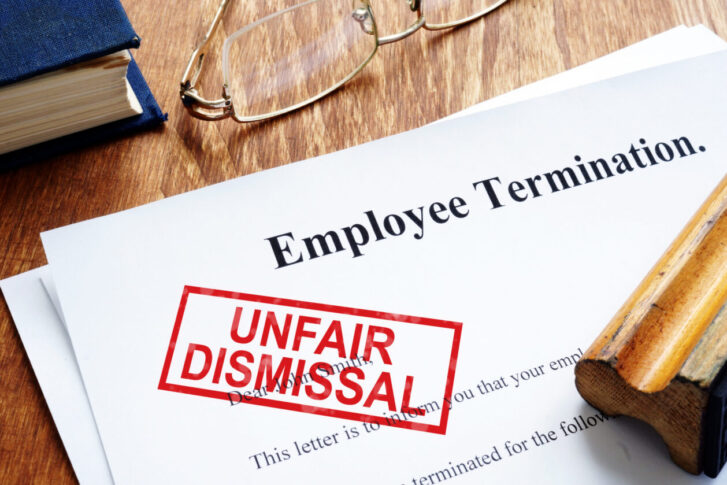On September 7, 2023, the Fair Work Commission (FWC) handed down a decision in an unfair dismissal claim involving an employee and serious misconduct.
Our employee relations experts examine the case and what it means for businesses.

Case facts
The applicant, Skei Batton, was employed as a Finance and Office Manager at the Environment Centre NT from July 26, 2022, until she was dismissed on Augst 28, 2023. Ms Batton was dismissed after a series of events that constituted misconduct of a serious nature. It began when the Biodiversity Policy Offer requested information from Ms Batton about how to reimburse volunteer workers for their travelling time. Ms Batton insisted on hearing more details before agreeing to process anything. In her failure to action the request, the Director and Treasurer of the organisation stepped in.
The issue escalated when Ms Batton acted and spoke to her colleagues in an extremely unprofessional manner via email responses, and as a result, a meeting was called to discuss Ms Batton’s conduct. The meeting was held later that day, with both the Director and Treasurer present. Ms Batton left the meeting immediately in an outburst, shouting derogatory words before leaving the premises.
The following day, notes of the meeting were emailed to Ms Batton, and she was advised that her behaviour would be discussed at the next employment committee. The email concluded with a request asking for her intentions around completing her outstanding tasks and whether she was going to return back to work. Ms Batton failed to respond to the email and additional attempts at contact over the next four days.
Ms Batton was then issued with a notice of warning and an investigation letter regarding the alleged misconduct and poor performance that may result in dismissal. After the investigation took place, it was determined that based on the findings, Ms Batton would be dismissed on the basis of misconduct of a very serious nature, being absent from work without explanation and refusing to follow the Executive Director’s reasonable direction.
The decision
The case was heard by Commissioner Riordan who was more than satisfied that there was a valid reason for the termination of Ms Batton. The Commissioner acknowledged that her behaviour was disrespectful, belligerent and an overreaction and that her failure to attend work and simply disappear, constituted a valid reason for dismissal.
When determining whether the process of the dismissal was fair in all circumstances, the Commissioner held that due to being an unqualified accountant who was not confident in doing the requested tasks, she should have received more support from the respondent. In addition, the Commissioner was not satisfied that Ms Batton was awarded a “fair go” in this disciplinary process because the Executive Director both conducted the investigation and was the complainant of Ms Batton’s behaviour. On this basis, the Commissioner ruled the termination was harsh and ordered the Environment Centre NT Inc to pay $12,000 plus superannuation to Ms Batton.
Key takeaways
When dismissing an employee, it is imperative to provide the employee “a fair go” and a procedurally fair process when investigating alleged misconduct.
There is a non-exhaustive list of considerations that will be examined to determine procedural fairness, dependent on each individual situation.
Even when there is a valid reason for dismissal, and some components of procedural fairness are met, such as notifying the employee that their employment is at risk and allegations of underperformance, there can still be determinant factors that affect the overall outcome of a FWC case. In this specific case, the one determinant that overturned the decision of the Commissioner, was having the complainant conduct the investigation.
Employers are urged to consider all factors that may appear as bias in the eyes of the law. CCIWA strongly recommends that employers contact the Employee Relations Helpline on 08 (9365 7660) or via [email protected] to seek further advice prior taking any action.












